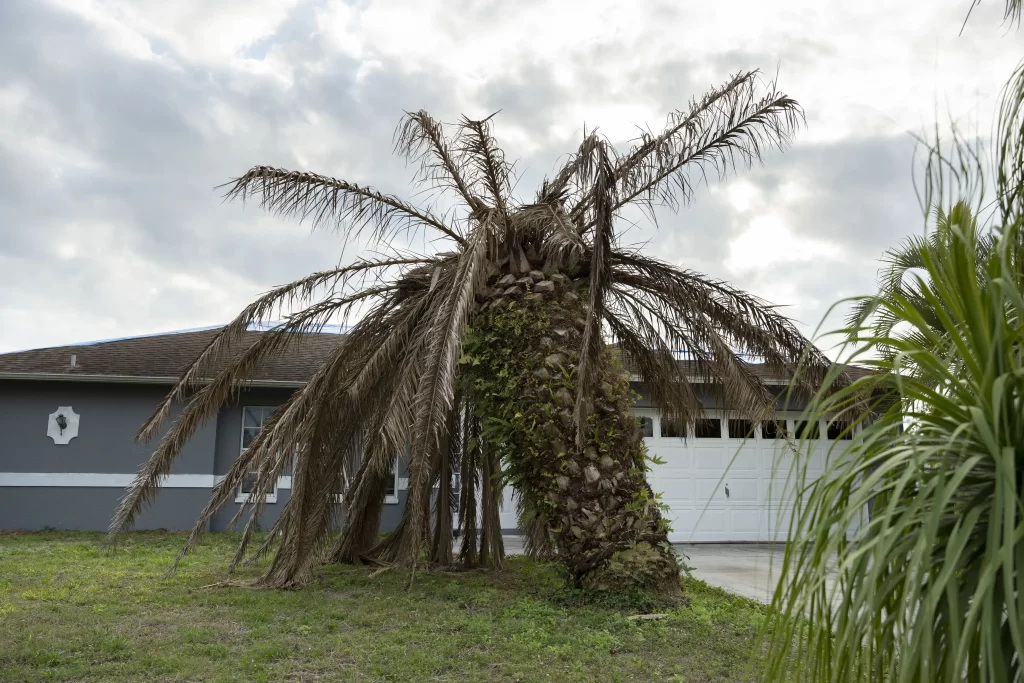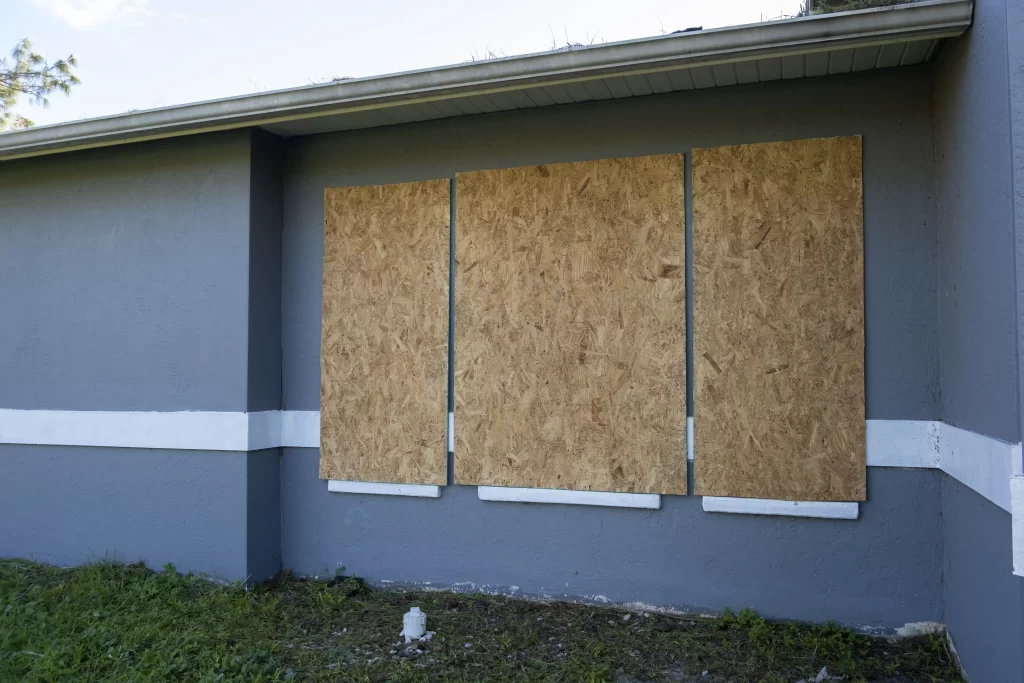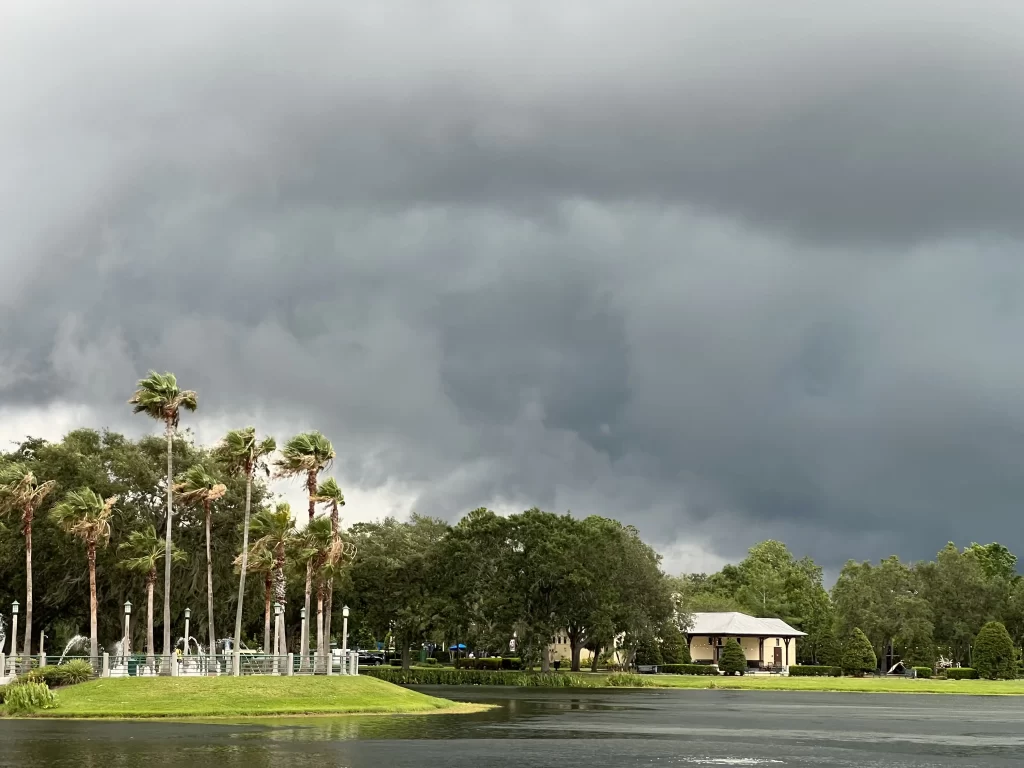When you think of Florida, the images that likely come to mind are sun-soaked beaches, picturesque sunsets, and palm tree-lined shores. However, for those who call the Sunshine State home, there is another reality that they must confront: the annual hurricane season. Each year, Floridians brace themselves for the potential impact of these powerful storms. But preparing your Florida home for hurricane season doesn’t have to be overwhelming or stressful. In fact, with a little foresight and some practical steps, you can safeguard your property efficiently and ensure the safety of your loved ones.
Imagine this: it’s early June, and the first whispers of an approaching storm start to circulate. The news outlets are buzzing, and you start to feel that familiar anxiety creeping in. Wouldn’t it be reassuring to know that you’ve already taken all the necessary precautions to protect your home? In this blog post, we’ll guide you through a comprehensive plan on how to prepare your Florida home for hurricane season. From fortifying your windows to creating an emergency kit, we’ll cover everything you need to know to ride out the storm with peace of mind. Stay with us as we turn preparation into empowerment, transforming worry into confidence.



Understanding the Florida Hurricane Season
Before we dive into the practical steps of preparing your Florida home for hurricane season, it’s important to understand the nature of these storms. The Florida hurricane season typically runs from June 1st to November 30th, with the peak activity occurring between August and October. During this time, tropical storms and hurricanes can bring strong winds, heavy rainfall, storm surges, and even tornadoes.
Florida’s unique geography makes it particularly vulnerable to hurricanes. Its long coastline and warm waters provide the perfect conditions for these powerful storms to form and intensify. As a homeowner in Florida, it’s crucial to be aware of the potential risks and take proactive measures to protect your property.
Assessing Your Home’s Vulnerabilities
The first step in preparing your Florida home for hurricane season is to assess its vulnerabilities. Start by conducting a thorough inspection of your property, paying close attention to areas that are prone to damage during high winds or heavy rain.
Check your roof for loose or damaged shingles that could be easily torn off by strong winds. Reinforce any weak spots or consider investing in impact-resistant roofing materials. Additionally, inspect your garage doors and windows for any signs of wear or vulnerability. These areas are often the weakest points in a home’s defense against hurricanes.
Securing Windows and Doors
To protect your home from hurricane-force winds and flying debris, it’s essential to secure your windows and doors properly. Consider installing storm shutters or impact-resistant windows that can withstand high winds and impacts without shattering.
If you don’t have storm shutters or impact-resistant windows, you can also use plywood as a temporary measure. Cut pieces of plywood that fit snugly over each window and door opening, then attach them securely using screws or bolts. Remember to label each piece of plywood with the corresponding window or door for easy installation.
Clearing Your Surroundings
Another crucial step in preparing your Florida home for hurricane season is clearing your surroundings. Trim any overhanging tree branches that could potentially fall and cause damage during a storm. Remove any loose items from your yard, such as patio furniture, potted plants, or garden decorations, and store them in a secure location.
Inspect your gutters and downspouts to ensure they are clear of debris. Clogged gutters can lead to water overflow, which can cause damage to your home’s foundation or contribute to flooding during heavy rainfall.
Creating an Emergency Preparedness Kit
In the event of a hurricane, it’s essential to have an emergency preparedness kit readily available. This kit should include essential supplies that can sustain you and your family for at least three days without power or access to outside resources.
Your emergency preparedness kit should include non-perishable food items, drinking water, a first aid kit, flashlights with extra batteries, a battery-powered radio, personal hygiene products, prescription medications, and important documents such as identification papers and insurance policies.
Developing a Family Communication Plan
A family communication plan is crucial during emergencies when communication networks may be disrupted. Create a plan that outlines how you will stay in touch with each other before, during, and after a hurricane.
Designate an out-of-state contact person who can serve as a central point of communication for your family members. Share this contact’s information with everyone in your household and establish alternative methods of communication such as text messages or social media platforms.
Safeguarding Important Documents and Valuables
Protecting your important documents and valuables should be a priority when preparing your Florida home for hurricane season. Gather important documents such as birth certificates, passports, insurance policies, and property deeds, and store them in a waterproof and fireproof container.
Consider making digital copies of these documents and storing them securely in the cloud or on an external hard drive. This ensures that even if the physical copies are damaged or lost, you can still access the information you need.
Evacuation Planning
In some cases, evacuating your home may be necessary to ensure your safety during a severe hurricane. Familiarize yourself with the evacuation routes in your area and have a plan in place for where you will go if evacuation is recommended.
Pack essential items such as clothing, toiletries, medications, and important documents in a portable bag or suitcase. If you have pets, make arrangements for their safety by identifying pet-friendly shelters or arranging for their care with friends or family members outside the evacuation zone.
Staying Informed During the Storm
During a hurricane, staying informed about the latest updates and developments is crucial. Monitor local news channels or listen to NOAA Weather Radio for official updates from meteorologists and emergency management officials.
Stay away from windows and seek shelter in an interior room on the lowest level of your home. Avoid using candles as a source of light during power outages to prevent fire hazards. Instead, rely on battery-powered flashlights or lanterns.
Conclusion: Being Ready for Whatever Comes Your Way
In conclusion, preparing your Florida home for hurricane season is all about being proactive and taking practical steps to protect your property and ensure the safety of your loved ones. By understanding the risks associated with hurricanes, assessing your home’s vulnerabilities, and implementing the necessary precautions, you can face the storm with confidence and peace of mind.
Securing Windows and Doors for Maximum Protection
When it comes to protecting your Florida home from hurricane-force winds, securing your windows and doors is of utmost importance. These areas are often the weakest points in a home’s defense against storms, making them vulnerable to damage or even complete failure.
Investing in impact-resistant windows or installing storm shutters is the most effective way to safeguard your windows. Impact-resistant windows are specially designed to withstand high winds and impacts without shattering. They are made with multiple layers of glass or laminated glass that is held together by a strong interlayer.
Reinforcing Your Roof and Garage Doors
Your roof and garage doors are also susceptible to damage during hurricanes. Loose or damaged shingles can be easily torn off by strong winds, exposing your home to water damage. Reinforce your roof by inspecting it for any signs of wear or vulnerability.
If you have a garage, consider reinforcing its door with braces or installing a hurricane-rated garage door. These doors are designed to withstand high winds and impacts, providing an extra layer of protection for your home.
Clearing Your Yard and Securing Outdoor Items
Prior to hurricane season, take the time to clear your yard of any loose items that could become projectiles during high winds. Patio furniture, potted plants, garden decorations, and even tree branches should be secured or stored indoors.
If you have outdoor structures such as sheds or gazebos, ensure they are properly anchored to the ground. Trim any overhanging tree branches that could potentially fall onto your property during a storm.
Stocking Up on Essential Supplies and Creating an Emergency Kit
As part of your hurricane preparedness plan, it’s important to stock up on essential supplies and create an emergency kit. This kit should include enough non-perishable food, drinking water, and medication to sustain you and your family for at least three days.
Other items to include in your emergency kit are flashlights with extra batteries, a battery-powered radio, a first aid kit, personal hygiene products, and important documents such as identification papers and insurance policies. Store these supplies in a waterproof container that is easily accessible in case of an evacuation.
Developing a Family Emergency Plan
A family emergency plan is crucial for ensuring the safety of your loved ones during a hurricane. Sit down with your family members and discuss what steps you will take before, during, and after a storm.
Designate a meeting place in case you get separated during the storm. Assign responsibilities to each family member, such as gathering important documents or securing the home. Practice evacuation drills so that everyone knows what to do in case an evacuation order is issued.
Evacuation Planning and Route Mapping
In some cases, evacuating your home may be necessary for your safety. Familiarize yourself with the evacuation routes in your area and plan ahead for where you will go if evacuation is recommended.
Pack essential items such as clothing, toiletries, medications, and important documents in a portable bag or suitcase. If you have pets, make arrangements for their safety by identifying pet-friendly shelters or arranging for their care with friends or family members outside the evacuation zone.
Conclusion: Embracing Preparedness for Peace of Mind
In conclusion, preparing your Florida home for hurricane season is not just about protecting your property, but also ensuring the safety and well-being of your loved ones. By securing your windows and doors, reinforcing your roof and garage doors, clearing your yard, stocking up on essential supplies, and developing a family emergency plan, you can embrace preparedness with confidence and peace of mind.


